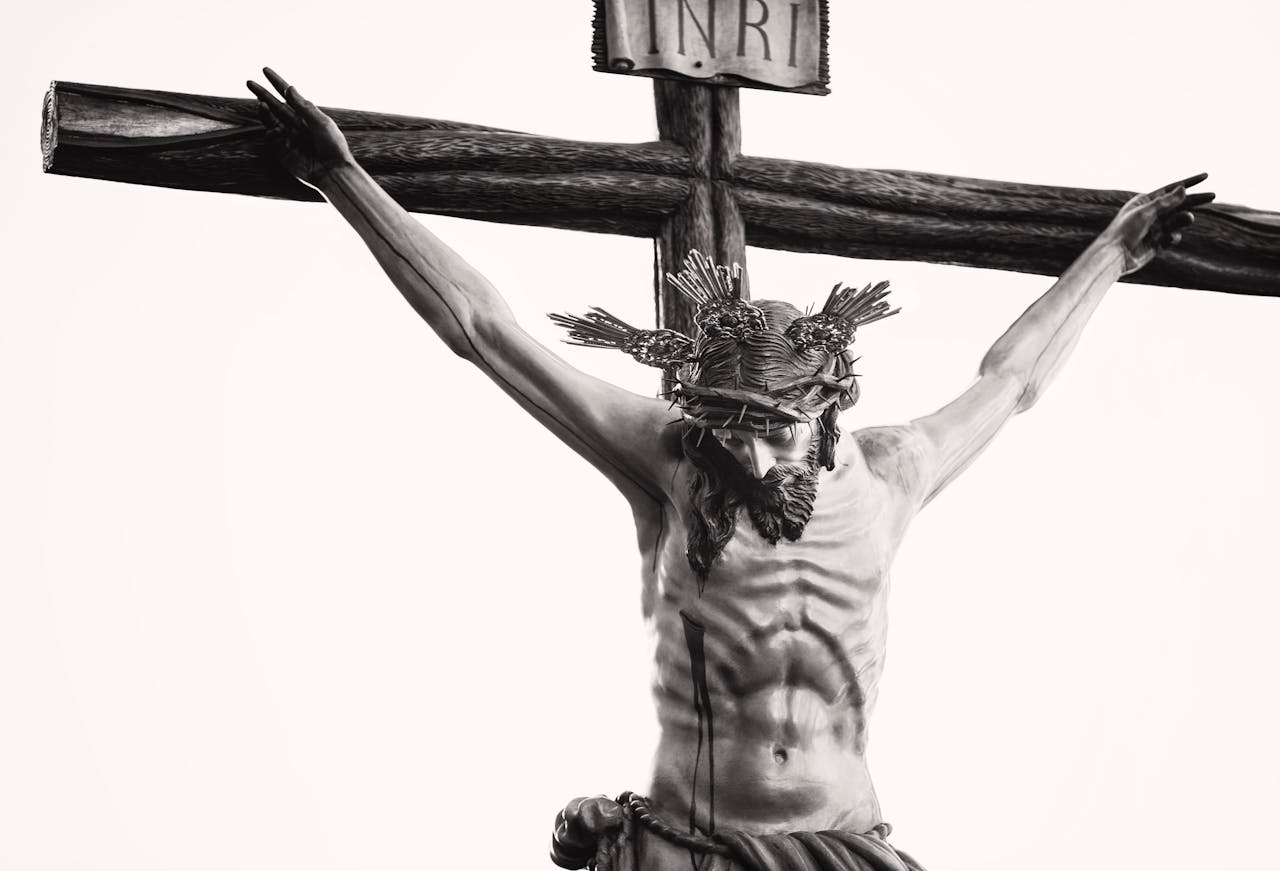Man Who Predicted the Rapture Faces Questions After Prophecy Fails

September 25 was meant to be the day everything ended. South African preacher Joshua Mhlakela had shared with conviction that he had met Jesus in a vision and that the Rapture would arrive on that date. His message spread far beyond his congregation, captivating an online audience eager for either salvation or spectacle.
The date arrived with anticipation and prayer. Many on social media waited for a divine event, checking the skies as if a notification might pop up from heaven. By sunset, it was clear nothing was happening. The Rapture did not come, but the memes did. TikTok, X, and Facebook filled with jokes, disbelief, and laughter. Mhlakela’s prediction had missed its mark, and now he had to face the fallout.
When questioned, Mhlakela explained that the event had indeed taken place, but only in the spiritual realm. For critics, it was an anticlimactic attempt to save face. For others, it was proof that faith and social media make a volatile mix.
This is the man who started the whole false rapture date for September 23rd 👇
— pleomorph (@pleomorph55) September 24, 2025
His name is Joshua Mhlakela, a works righteousness advocate
The amount of damage he did to hundreds of thousands of believers who were hoping the rapture would occur, only to have their hopes dashed,… pic.twitter.com/7pFOB5u91q
Understanding the Rapture
The Rapture is a concept drawn from Christian eschatology that describes a future event in which believers are taken up to meet Christ. For centuries, interpretations have varied among denominations. Some see it as a literal event tied to the end of the world, while others understand it as symbolic of spiritual renewal. Preachers have long used it to inspire readiness and repentance, urging followers to stay faithful and alert.
In popular culture, the Rapture has been depicted in films, books, and music as a dramatic disappearance of the faithful. Its emotional power lies in the contrast between salvation and separation. For many believers, it represents ultimate hope and divine justice. Yet it has also been a source of fear and speculation, fueling countless predictions that never came true.
Social media has magnified these interpretations, turning prophecy into viral entertainment. When someone like Joshua Mhlakela declares the date of the Rapture, it captures global attention because it touches deep human emotions: anticipation, fear, and wonder. The online world transforms a spiritual idea into a public countdown.
The Rise of Faith in the Feed
The term RaptureTok had already been trending before Mhlakela’s prophecy. On TikTok, religious and apocalyptic content thrives in bursts of emotional storytelling. Users film visions, interpretations, and personal revelations, mixing scripture with trending audio and dramatic filters. In this world, a single confident claim can turn into a viral sensation within hours.
Before September 25, videos tagged with #RaptureTok gained millions of views. Some creators urged repentance while others predicted the end in real time. Mhlakela’s content struck a chord, and his bold declaration was shared thousands of times. For many, it felt like participating in history unfolding on their phone screens.
The Gospel Coalition Africa observed that this digital revivalism feeds on emotion more than theology. The more dramatic the claim, the stronger the engagement. TikTok’s algorithm rewards intensity, not accuracy, creating a loop where every prophecy competes for attention.
When the day came and went, RaptureTok transformed from a space of holy urgency to one of collective irony. Users stitched videos mocking themselves for believing, and skeptics found endless material to share. The trend had burned brightly, then vanished, leaving behind a strange mix of faith, shame, and laughter.
Humiliated preachers who incorrectly predicted the Rapture try to explain why nothing happened | Chris Melore, Daily Mail
— Owen Gregorian (@OwenGregorian) September 26, 2025
The Christian pastor and others who falsely predicted the end of the world on September 23 are speaking out after nothing happened.
Pastor Joshua Mhlakela,… pic.twitter.com/UrZmpIhxHQ
How Believers and Skeptics Reacted
In the aftermath, online reactions revealed two sides of the digital divide. Believers tried to make sense of what they had witnessed, some still insisting that something unseen had occurred. Others admitted feeling embarrassed or disillusioned. They had prepared for the Rapture and were left facing another ordinary day.
Skeptics, meanwhile, celebrated the failed prophecy as confirmation of their doubts. Memes poured in, depicting angels delayed by bad traffic or heaven’s servers crashing under demand. The humor masked a deeper fascination with why such predictions keep capturing attention.
The Daily Mail highlighted that Mhlakela’s tone shifted quickly from confidence to defense. In his follow up posts, he maintained that divine timing could not be questioned. This insistence added to the spectacle, turning him into both a figure of mockery and a symbol of conviction misplaced in the spotlight of social media.
South African Pastor Joshua Mhlakela sparks global frenzy with a Doomsday prediction in September, prompting many who believe him to give away their valuable possessions, thinking the world is coming to an end and is worthless pic.twitter.com/jj1OUPY8qx
— TRT Afrika (@trtafrika) September 27, 2025
Prophecy Culture in the Internet Age
Mhlakela’s case is far from unique. Prophets and visionaries have long proclaimed end times that never arrive. What makes this era different is the speed of belief and disbelief. A sermon can reach millions, and its failure can become a meme before the preacher even wakes up.
Modern platforms encourage emotional storytelling and public confession. The intersection of faith and virality blurs sincerity and performance. When believers turn prophecy into content, they risk losing control of the narrative. The line between ministry and entertainment grows thinner with every view.
The persistence of these failed predictions speaks to a universal need for certainty. When the world feels chaotic, people turn to prophecy for structure. Each prediction, even when proven false, briefly restores order by offering a timeline for meaning. The digital age has simply made that timeline refresh faster.
South African Pastor, Joshua Mhlakela is facing criticism for claiming the world will end yesterday. pic.twitter.com/NgeGTTpVrY
— Africa Facts Zone (@AfricaFactsZone) September 24, 2025
What This Teaches About Belief Online
Joshua Mhlakela’s story is less about failure and more about reflection. His prediction revealed the vulnerability of faith in the echo chambers of modern media. Once belief enters a viral loop, it becomes content to be consumed, not conviction to be nurtured.
Skepticism, used wisely, becomes compassion rather than ridicule. It reminds us to ask questions before sharing extraordinary claims. Blind faith shared online risks turning spiritual guidance into public spectacle. Every viral prophecy becomes both a sermon and a cautionary tale.
The humor surrounding RaptureTok might have entertained millions, but it also exposed a deeper truth. People crave connection and meaning, even when it arrives wrapped in exaggeration. The challenge is to find those truths without mistaking noise for revelation.
This story also underscores how online ecosystems shape the way we perceive belief itself. Algorithms favor emotion over evidence, meaning that claims touching on fear, salvation, or hope are pushed higher into feeds. For believers, this constant visibility can create a feedback loop where the loudest voices seem the most authoritative. For skeptics, it becomes a cycle of disbelief that reinforces cynicism.
Understanding this dynamic invites a broader conversation about responsibility. Spiritual leaders, creators, and followers alike must balance authenticity with discernment. True belief should inspire deeper thought rather than quick engagement. Perhaps the lesson is that in the flood of digital information, faith and reason must learn to walk together so that neither is drowned by the noise.

Looking Back With Laughter and Lessons
Months later, Mhlakela’s name still circulates as a punchline and a parable. The failed Rapture became a study in how digital culture transforms belief into performance. The world did not end, but for a brief moment, it united around a shared curiosity about what if it had.
Humor, it seems, is humanity’s way of processing disappointment. The Rapture never came, yet the laughter that followed became its own kind of spiritual release. Faith was tested, TikTok was entertained, and the planet kept spinning.
Perhaps that is the true lesson: every prophecy about endings becomes an invitation to start thinking more critically about beginnings. In the age of instant virality, discernment may be the one miracle we can all still believe in.
Feature Image Credit: Courtesy of Alem Sánchez | Pexels
Loading...

